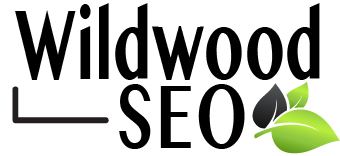What Do The Different Shades of SEO Mean for Web Users?
As well as PPC and content marketing, you’ve probably got SEO on your radar big time. Wise move — it’s one of the most cost-effective acquisition channels for small businesses. But it can be difficult to know exactly what sort of SEO you need.
You may have heard of a term online: black hat SEO — but do you know what it really means? And what exactly is the difference between a black hat and white hat SEO? How can you spot the difference between the two camps, and make sure that you are making the right decisions for your website and users?
Learn more about the different shades of SEO, and what they mean for your business.
Online marketing ethics center on the user
Online marketing ethics aren’t that different to offline marketing ethics; they center around making sure that the user can correctly identify and understand the information in front of them. You don’t want to deceive or mislead the user — and that’s where ethics step in.
It’s important to add value and be transparent when doing SEO online: whether that’s through your on-site content or brand partnerships.
Think about whether your content adds any value to the user? What purpose does it serve?
- Commercial goals should be disclosed to the user so as to not misinform or mislead.
- Plagiarizing or misappropriating someone else’s content without a relevant credit or acknowledgement of the source material is not best practice. It is misleading and unfair for the user. Always work hard to give credit where credit’s due – this includes images.
- Focus on writing for your audience and customers, not pleasing search algorithms. Even though keyword research is essential, keyword stuffing definitely isn’t.
What about the hats?
White hat SEOs are traditionally seen as the more ethical counterparts of SEO, and most people running agencies or working as SEO consultants identify as white hats. 99% of the time you will come across white hat SEOs — and they are the ones drawn to client services and online marketing.
SEOs can sometimes be labeled as black hat if their online promotion methods cross the line of accepted best practice and become misleading or ‘spammy’. Black hat SEO, the more aggressive form of SEO, definitely goes against search engine guidelines. The problem with black hat SEO is that some of its tactics can be deliberately misleading to the user and take advantage of website loopholes.
Many people continue to use black hat SEO despite the risks, because of the results it delivers in certain niches. By doing so, they risk search engine penalties. It’s also becoming a lot less effective as search engines wipe out the old tactics.
Can SEO be ethical?
Absolutely, SEO can, and should be, ethical. Doing SEO that is accountable, transparent and centers on user-experience is completely possible and many SEOs are already doing it.
The never-ending “SEO is dead” argument is really just about how SEO is evolving, not dying. Nowadays, SEO is more about doing great things online, rather than trying to ‘game the system’. High quality content and good on-site user-experience will help you make inroads with your SEO strategy.
Does SEO break any rules?
Deliberate manipulation of search rankings is often discouraged by Google.
Even though SEOs try to toe the line, there are still some ethical considerations to take into account:
- Is your content created for commercial reasons clearly labeled as such? If not, do you make any claims in there that are misleading?
- Is a mention of a business, product or service freely given or paid for? If it’s paid for, how is this signaled?
What does the SEO community look like?
SEOs are solid marketers, avid content creators, web evangelists and savvy businessmen and women.
It’s not easy to generalize about such a diverse industry that combines technology, content and commercial acumen!
- Most SEOs like to be judged by their work so if you are not sure about someone’s methods – ask for their client portfolio and information regarding previous projects.
- The SEO community is ever-expanding to include a wider range of skills as the discipline evolves, which is both enriching and challenging. SEO specialization and segmentation into niches like local SEO, outreach SEO, and technical SEO proves that the industry is evolving to meet the complex needs of SEO today. You will probably be able to find a dedicated specialist for your niche or business – someone who understands your specific industry challenges.
- Many SEOs now prefer to focus on rapid content creation rather than excessive link building to raise their online profile. The advent of social media and content marketing has shifted the goalposts for a lot of SEOs.
The Best Way to broach SEO ethics
If you are working with clients and doing any sort of SEO or promotion on their behalf, it’s important to be honest with them about the consequences, risks and benefits of the tactics you are employing.
Similarly, you need to be switched on and quiz your SEO providers about their methods and their knowledge of the latest industry developments.
Focus on creating a great customer experience online and creating quality user-oriented content – and don’t forget to follow all the latest SEO industry news to see what’s changing.
SEO is a highly dynamic form of online marketing. Ethical SEO is completely possible, and unethical SEO also exists. Where do you think online ethics needs to change the most and why?

Victoria Greene is a branding consultant and freelance writer. She loves all things eCommerce, and is a specialist in the areas of social media and digital marketing.

